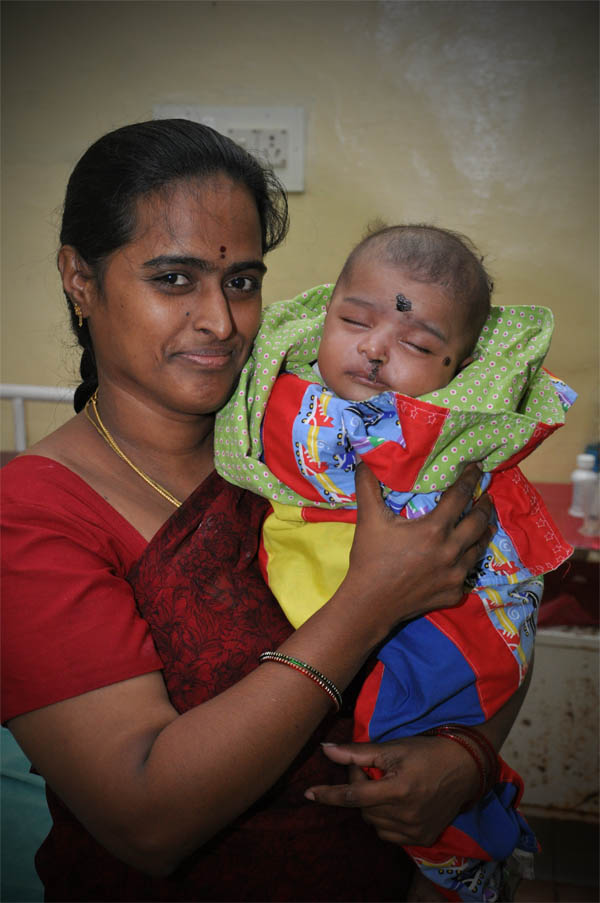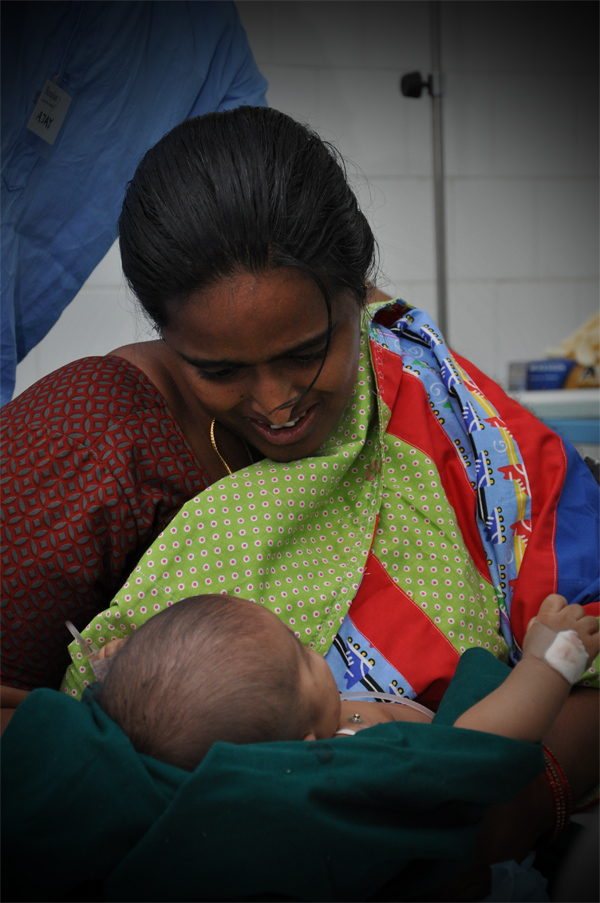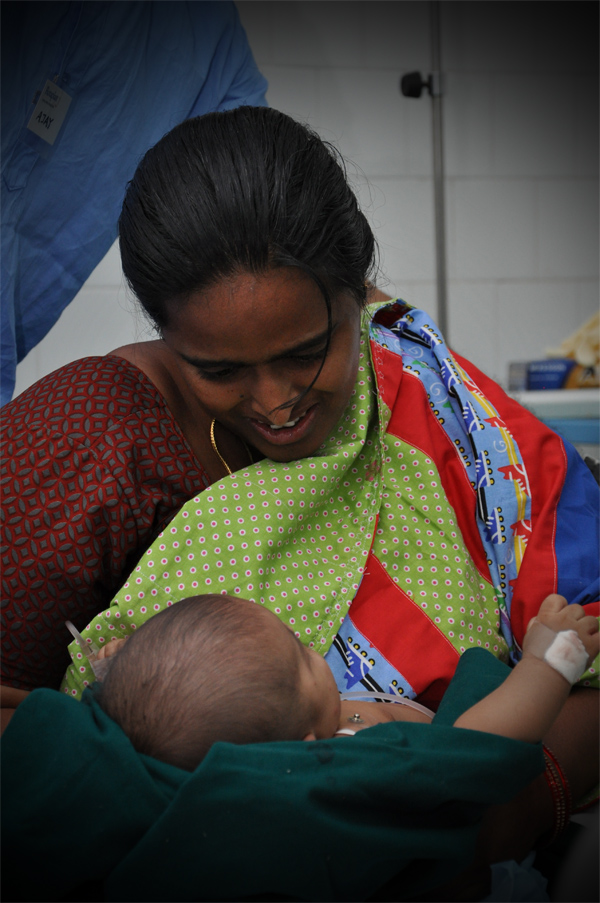
Our patients aren’t just numbers on a chart, they have names and faces and stories to tell. Too often, in the effort it takes to treat as many as we can in the short time that we have, we lose that personal touch and we don’t hear the thoughts, fears, and hopes of those we treat.
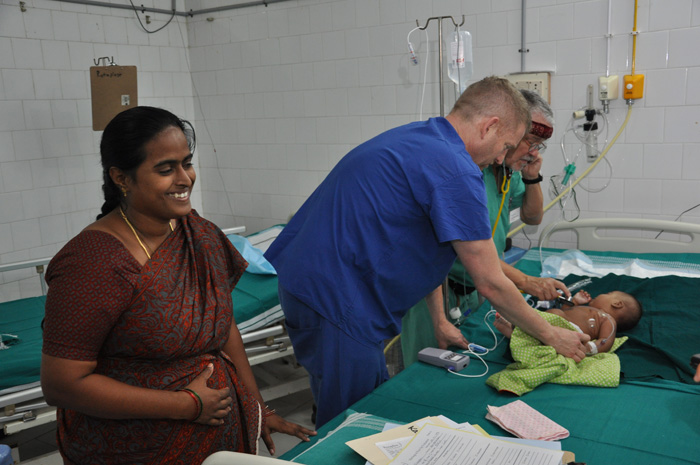
I first noticed Saraswathi as staff ushered her into the PACU to see her baby, Kalliyappan, in the first moments as he awoke after surgery. From the moment she entered the room, Saraswathi beamed with an infectious happiness. She stood patiently by waiting to hold her baby once again while Bruce and Wendell ensured all the vital signs looked good. Satisfied with the baby’s progress, Bruce gently placed Kalliyappan into the waiting arms of his mother. The joy and wonder of this mother touched me and I made a note to visit with her the next morning during rounds.
The next morning, before rounds had started, I ran into Saraswathi who was even more excited than the day before. Through the interpreter, I learned that the baby had made the “m” sound for the very first time just after waking this morning. The Tamil word for mama is “amma”. Kalliyappan had been making the “ah” sound for some time but with the cleft lip, could not make the “m” sound. Nothing pleases a mother more than being called mama, or in this case, amma for the first time. Kalliyappan is already demonstrating the fruits of the lip repair.
Saraswathi and Kalliyappan came from the town of Tirupur and traveled more than 300 kilometers and 12 hours to get to Karaikal for the surgery screening. They’d heard of the upcoming Rotaplast mission from a local Rotary club and attended an initial screening when Kalliyappan was little more than three months old. Kalliyappan was born with a cleft left lip.
Kalliyappan is small for his age weighing only 3.5 kilos or 7.7 pounds and not thriving due to the difficulty in feeding. He’s happy and active though. and rarely cries. His bright eyes follow movement and sounds and he grasps with surprising strength for such tiny hands. In every other way, he’s a beautiful baby boy.
I asked Saraswathi what a surgery like this means for her and the baby. The first thing that came to mind for her was that now she would be complete as a mother. When asked what that means she explained that Kalliyappan hadn’t been able to breast feed due to the cleft lip, he simply wasn’t able to make a good latch. In her society, a mother is expected to breast-feed her children and if she cannot, she’s not considered to be a good mother. It didn’t matter that since he was born, she’d been expressing her milk and feeding with a syringe. Her own self-image suffers from the lack of ability to breast feed.
A little research into some of the Hindu religious beliefs around breast-feeding to gain a little better understanding of the cultural background: Sushruta Samhita describes the power of breast milk. “May four oceans, full of milk, constantly abide in both your breasts, you blessed one, for the increase of the strength of the child! Drinking of the milk, whose sap is the sap of immortal life divine, may your baby gain long life, as do the gods by feeding on the beverage of immortality!” (Susruta, III, 10).
With this as a cultural background, it’s no wonder that there can be a feeling of inadequacy.
The inability to breastfeed hasn’t been the only challenge. In this culture, the first-born child must be male and be perfect because that child will eventually be responsible for the care of the whole family in their elderly years. Saraswathi earned the wrath of her mother in law for producing a defective baby who, due to his defect, couldn’t possibly provide for them later in life. The discrimination he would face would make it impossible to get a good paying job or receive and education for a chance at a profession. Her mother in law frequently curses her and abuses her in ways that are difficult for us to imagine for giving birth to a defective child.
The mother and child are staying at the hospital on a tiny hospital bed for nine days in order to attend the final clinic. They simply live too far away and the travel would be too expensive and difficult for them to travel back and forth for the final checkup. The post-operative ward is hot, crowded, and noisy. It’s a difficult place to rest for short periods and yet this little family will be here for more than a week. Through it all, I’ve never seen her without a smile and a happy greeting. She’s used a sari to make a hammock for the baby which keeps him snug and happy. She thanks every Rotaplast member she meets.
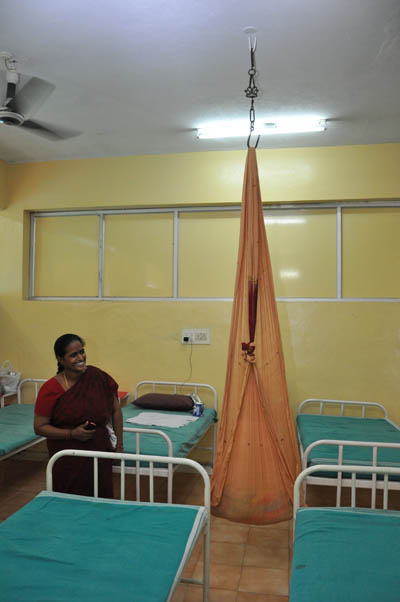
I asked Saraswathi again, what the surgery from Rotaplast means to her. To her, it means a chance at a normal life. It means a chance at acceptance from the family and the community. For the baby, it means a chance at a future without discrimination.
